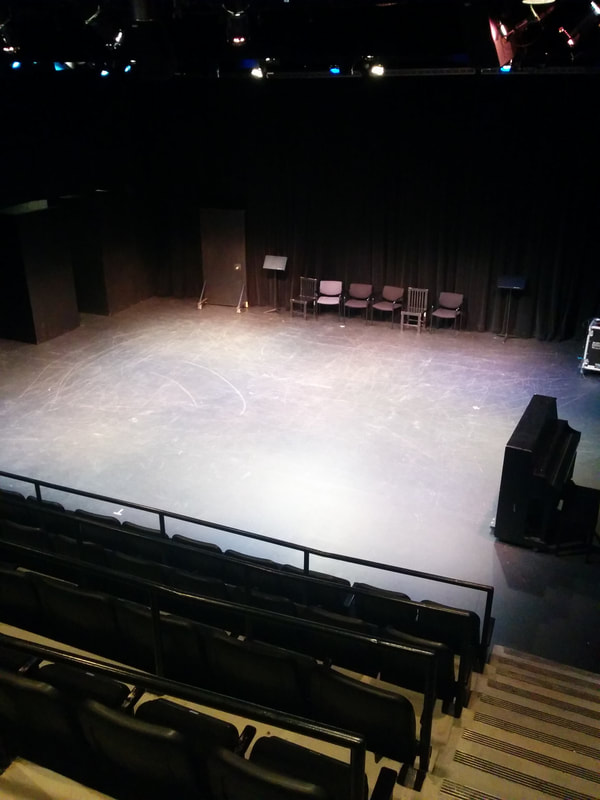But I'm not an architect or a craftsperson, and the things I make don't stand for all to see. Theatre is not tangible in the traditional sense, the way a building is, and this impermanence is both unsatisfactory and seductive. I make plays and tell stories and tonite, after three months of work and play with my grad students, our play will be released into the world. It will glow like the flame of a candle in the dark, burn brightly, and then at the end, flicker out, leaving but a wisp of smoke curling into goodness knows where. Actors, using their bodies and their voices, their intellect and imagination, will disappear from the stage, and the audience, having generously offered their attention (one of the greatest gifts to give someone), will take leave of their seats.
The energy that will crackle and spark between you and the audience when you stand onstage speaking words aloud, feeling at once minuscule and enormous, like a guyser and a well, your feet planted like roots connected to all those artists that came before you, while at the same time, getting the sense you might just fly away in the midst of the magic of it all.
After, the theatre is empty. Soon it will be dark. Then, the question that haunts me each time I play onstage: Was that real? Did it ever really happen?
Silence.
Yes?
Yes. A tiny voice, no more than a whisper, answers me.
YES. Not only WAS it real. It IS real, still.
I haven't made a building. I've haven't made children. And I don't know that I will. For an artist, it's easy to feel invisible, insignificant, like the outsider at a party, where everyone but you showed up with something to share with the group. There can be deep shame, doubt, and a sense of wishing you could want something different for your life while at the same time knowing you cannot possibly want anything but this path. When your creations appear and disappear with consistent regularity, and some that never saw the light of day at all, it's too easy to sink into a place where you fear you've never made anything that matters. Not done anything that counts. That you don't matter, don't count.
It's easy for me to dismiss what I do, what I am capable of leaving behind, but then I think of incredible plays, books, songs, and works of art I have been lucky enough to see, read, hear, and experience, and I know the ways that these things and their authors have changed the course of my life. The indescribable ways that the words, notes, colors, sensations, have etched their meaning on my very soul. After awhile, it becomes harder to dismiss ourselves in this way.
What might we have offered another human being with something we've made? What course did we alter? What smile did we give? Does the intangible nature of an experience make it any less?
After Philip Seymour Hoffman (one of my favorite actors) died a few years ago, I started to imagine a conversation I might have with him, before I went into an audition or performance. Call me crazy, but I racked my brain to imagine what kind of advice someone like him might give someone like me, a diligent but doubting artist. And one day, walking through the park in the spring, I heard it. "You have to believe that what you are doing matters."
You have to believe that what you are doing matters. That what you have done matters, and what you will do matters. Don't buy into beliefs (someone else's or your own) that make you question your worth or the worth of what you are making.
And if you forget? Go back again and again, to art that speaks to you, that moves and shakes you. Sink into how much it matters to you. And eventually, this appreciation and wonder might just seep into your own practice as you realize that as an artist, you are part of that ecosystem, that legacy. How could you not matter?
And if you forget a million more times? You're welcome on this little corner of the internet. I'm committed to keeping this space as a place where you can come to be reminded that what you are doing matters, whenever you need it--and if you're like me, you'll need it often.

